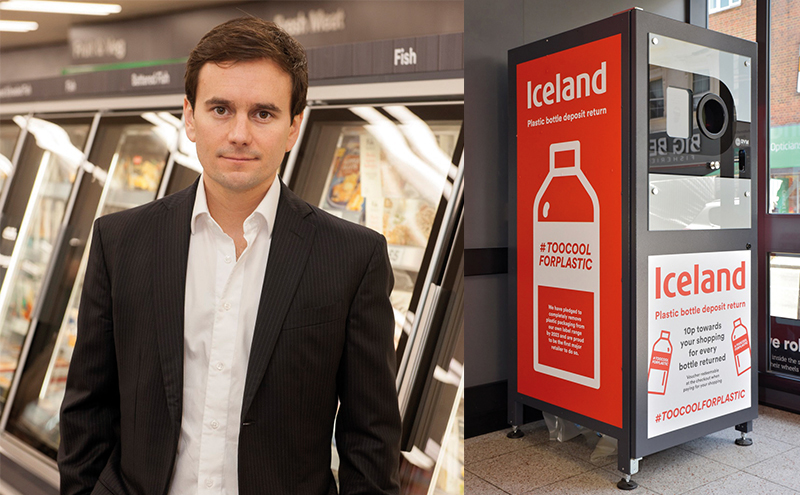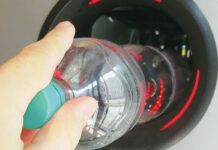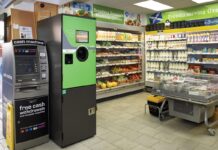Iceland boss takes aim at plastic waste

AS governments in Edinburgh and London consider their options on deposit return, one retailer has grabbed the bull by the horns, launching a pilot scheme that’s already cutting down single-use plastic waste.
Frozen food specialist Iceland installed reverse vending machines for drinks containers at selected stores across the UK this summer, including in its Musselburgh store, and things already seem to be going well.
Iceland managing director Richard Walker told Scottish Grocer that the trial is already proving successful.
“We’re counting the amount of plastic bottles that are deposited which is the ultimate measure of whether this is successful and that’s growing week on week,” said Walker.
“The customer reaction has been fantastic. I haven’t seen the reverse vending machine in Musselburgh but I’ve been to a few others and people are really engaged with the idea and think it’s great.
“I think people are aware of the scourge of plastic and want to do what they can. Recycling is a positive simple thing that anyone can do.”
While Iceland may have stepped ahead of much of its competition when it comes to implementing DRS, Walker said the retailer plans to share knowledge gained from the trial with government and the industry.
“Big problems like plastic require collaboration,” he said, “We’ve been speaking with the British Retail Consortium, we’ve attended a few roundtable events and also been talking to the Department for Environment, Food and Rural Affairs (DEFRA) as well in terms of how the scheme is running, but absolutely we have to have buy in from all retailers and it has to be administrated by retailers.”
Walkers view, that the system should be administrated by retailers, is still up for debate in Scotland.
At present there are competing schools of thought on how DRS should be administered, be that by a non-profit operator, private tender or through public ownership. The Iceland boss reckons any future system should be owned and administered by the industry, adding that it must also be high street friendly.
“At Iceland we’ve got over 900 stores and we’re on every high street in the UK. In many cases we’re often the last large grocer left so the health of the high street is so important to us. We’re taking so many headwinds at the moment and we’ve got to make sure this isn’t another nail in the coffin.”
Another scheme component yet to be decided is whether DRS will roll out as a UK-wide system, or instead operate as two separate systems in Scotland and the rest of the UK.
While a UK-wide system would have the benefit of full integration, with all the corresponding efficiency savings that may bring, a separated system would ensure the value of recycled materials would be retained by a Scottish operator.
What option the Scottish Government will choose remains to be seen, but Walker, at least, already has his mind made up.
“I think it’s really important that we have one scheme across England, Scotland and Wales,” he said.
“I don’t want to see any political points scoring north or south of the border,
“We’ve got to work together so it’s not just retail that’s got to collaborate, it’s also governments and devolved governments that have to collaborate as well because if we have different schemes in Scotland and England that would just be chaos.”
Looking to the future, Walker said Iceland’s sustainability drive will not stop when the six month DRS trial comes to a close.
Iceland is currently engaged in a raft of plastic reducing measures including a pledge to eliminate all plastics from its own-brand rage by 2023, a roll out of paper based trays for its ready meal ranges, as well as supporting plastic tackling initiative Surfers Against Sewage. Richard hopes other firms will follow suit.
“I hope our initiatives will serve as an example to the big brands. We’ve been working with some of our supportive branded suppliers on how they might reduce plastic footprints and it’s harder for some and not possible for others, but I think wherever possible people need to stand up and recognise their responsibility.”


















